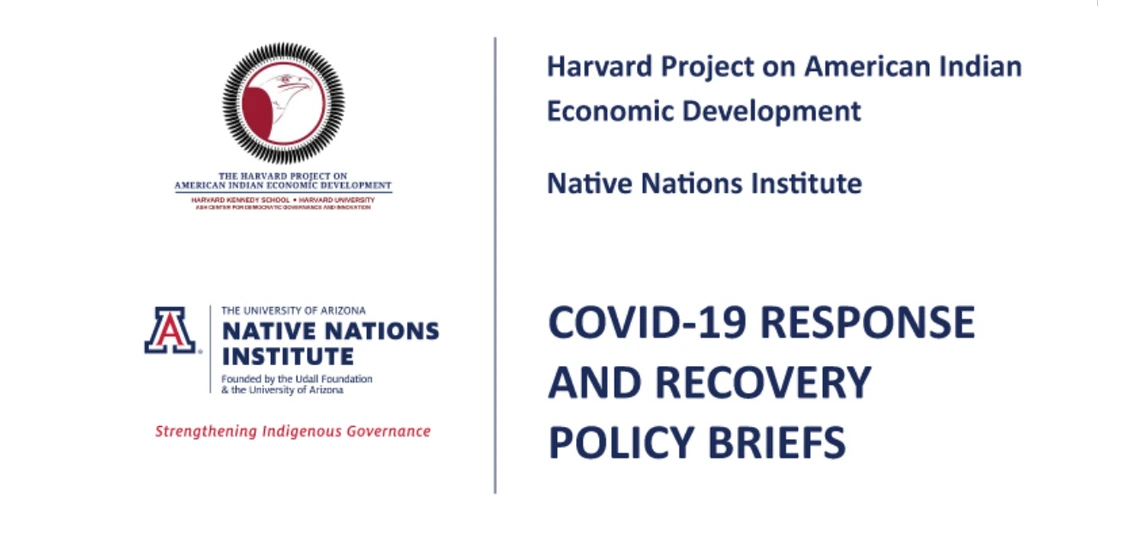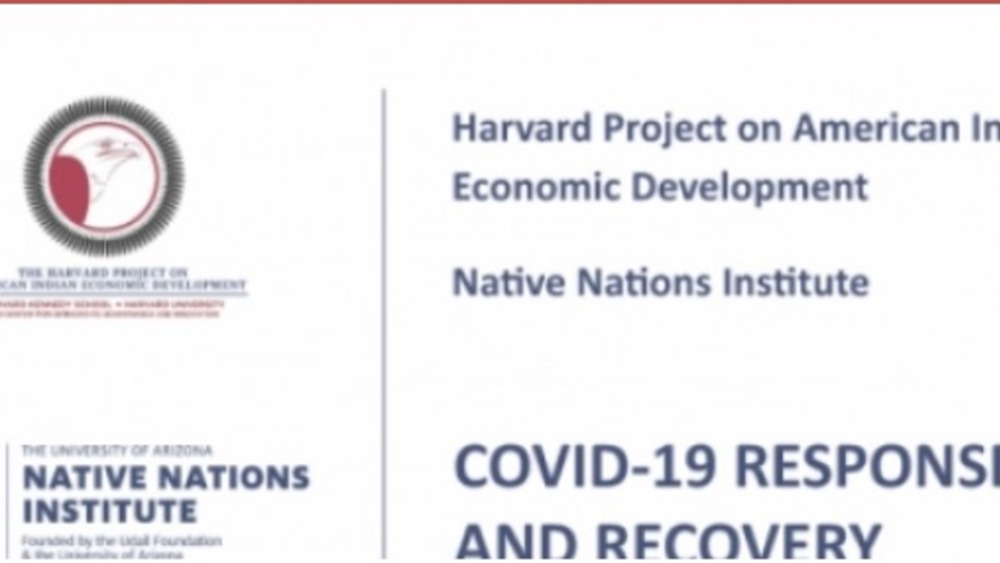The federal response to the COVID‐19 pandemic has played out in varied ways over the past several months. For Native nations, the CARES Act (i.e., the Coronavirus Aid, Relief, and Economic Security Act) has been the most prominent component of this response to date. Title V of the Act earmarked $8 billion for tribes and was allocated in two rounds, with many disbursements taking place in May and June of this year. This federal response has been critical for many tribes because of the lower socio‐economic starting points for their community members as compared to non‐Indians. Even before the pandemic, the average income of a reservation‐resident Native American household was barely half that of the average U.S. household. Low average incomes, chronically high unemployment rates, and dilapidated or non‐existent infrastructure are persistent challenges for tribal communities and tribal leaders. Layering extremely high coronavirus incidence rates (and the effective closure of many tribal nations’ entire economies) on top of these already challenging circumstances presented tribal governments with a host of new concerns. In other words, at the same time tribal governments’ primary resources were decimated (i.e., the earnings of tribal governmental gaming and non‐gaming enterprises dried up), the demands on tribes increased. They needed these resources to fight the pandemic and to continue to meet the needs of tribal citizens.
As in the rest of the U.S., emergency and interim support from the CARES Act (and to a lesser extent, related COVID‐19 stimulus funding) has helped to dampen the social and economic harm of the COVID‐19 crisis in Indian Country. This is in spite of the fact that the assistance was delivered to the 574 federally recognized Indian tribes only after considerable litigation‐driven delay, with counterproductive strings attached, and in a context characterized by long‐standing federal government under‐funding and neglect.
Additional Information
Henson, Eric C., Megan M. Hill, Miriam R. Jorgensen, Joseph P. Kalt. July 24, 2020. Policy Brief: Federal COVID‐19 Response Funding for Tribal Governments: Lessons from the CARES Act. Cambridge and Tucson: Harvard Project for American Indian Economic Development and Native Nations Institute.




